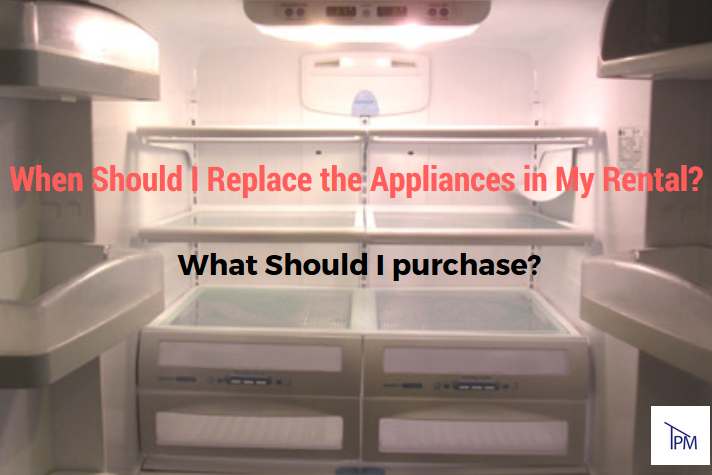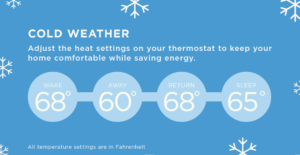When Should I Replace the Appliances in My Rental? What Should I Purchase?
Appliances are a very important part of your rental. The two most important areas to a tenant in a property are the bathrooms and kitchens, which contain most of the appliances in a property. The first thing the tenant does is walk into the kitchen and start opening the appliances and drawers.
When should you get new appliances? This seems like an easy question with the answer being, when they die. That’s what most of us in our personal residents do. Rentals, however, are slightly different. If you wait until the appliance breaks down it causes a chain of negative reactions. First, the tenant is unhappy that the appliance doesn’t work. He may want a reduction in the rent while the appliance isn’t functioning which will cost you money. Secondly, if is a refrigerator, it could ruin food. Most tenants want the owner to reimburse them for the spoiled food. And, finally, when you have to purchase something that can be delivered immediately, it takes away your ability to comparison shop and get the best appliance for the least amount of money. Waiting for an order to come a week from now is not practical when someone is without a refrigerator, oven, or even a washer or dryer.

So, when should you replace the appliance? Before it breaks down, but after its useful life is about over. You can count on appliances working for approximately the following number of years:
Refrigerators 8-10 years
Stoves 10-30 years
Dishwashers 10-12 years
Washers 10-12 years
Dryers 10-12 years
When your appliances get this old, it’s time to start thinking about buying something new. Watch for sales. Home Depot, Sears, and local appliances stores offer sales through-out the year so watch their flyers and purchase when you see a good deal. Remember to check whether delivery and removal is included or extra as those can greatly affect the cost of your new appliance.
In rentals, it is not always a good idea to just go out and purchase the least expensive item that’s available. Tenants use appliances, and misuse them, more than homeowners do. Your property manager cannot be on site every minute to make sure they mistreat the appliance so often buying the least expensive one can turn out to be, for the owner, the most expensive choice.
Take stoves, for example. The metal sides and top in the bottom of the line stoves are so thin you can practically dent them with your thumb and a little pressure.
Dishwashers need to have a cleaning source both on the bottom and for the second shelf. If they don’t, the tenant will always complain that the dishwasher doesn’t get the dishes clean. In one cleaning source dishwashers, the particles on the bottom row are washed up onto the dishes on the upper shelf and not removed at all.
Refrigerators can have either wire or glass shelves. The glass shelves hold up better. The plastic shelves and walls can also be so thin in the less expensive models that they break within the first year.
Buying the most expensive appliances for a rental is also not a good idea. Stay away from the complicated ones that require a special technician to service them. Don’t buy appliances with a computer system that’s so complex that no one can figure it out. Buy basic models of everything. Keep in mind the purpose of the appliance and get one that does that and nothing more. Refrigerators in rentals don’t need sensors to let the tenant know what food is in their refrigerator. Washers and dryers need to do just that: wash & dry with no special computer systems or special detergent needed. You aren’t buying for your home or your needs so keep that in mind. You want something that does the job, is sturdy, and isn’t too difficult to service.
One final thing: keep the value of the property in mind when buying new appliances. In other words, don’t put a $700 refrigerator in a property worth $750,000.00. Buy the side-by-side. Conversely, don’t spend $11,000 on a washer and dryer set for condo that rents for $900/month.
Should you or the tenant supply a washer/dryer if hook-ups are present? It depends upon the property and value of the property. If you are renting a property that is a residential home or upscale townhome or condo, a lot of tenants in that price range ($1800-3000/month rental amount) will have their own washer and dryer. If, however, you are renting a property in the range of $1200/month or less, the tenant is less likely to have one of their own and would appreciate having one in the rental. We have not found that adding a washer/dryer increases the value of the property, but especially in the lower price ranges, it makes the property rent faster.
For more tips like these or to talk with an experienced and professional rental manager, please give us a call at our Durango office at 970-259-0222.



